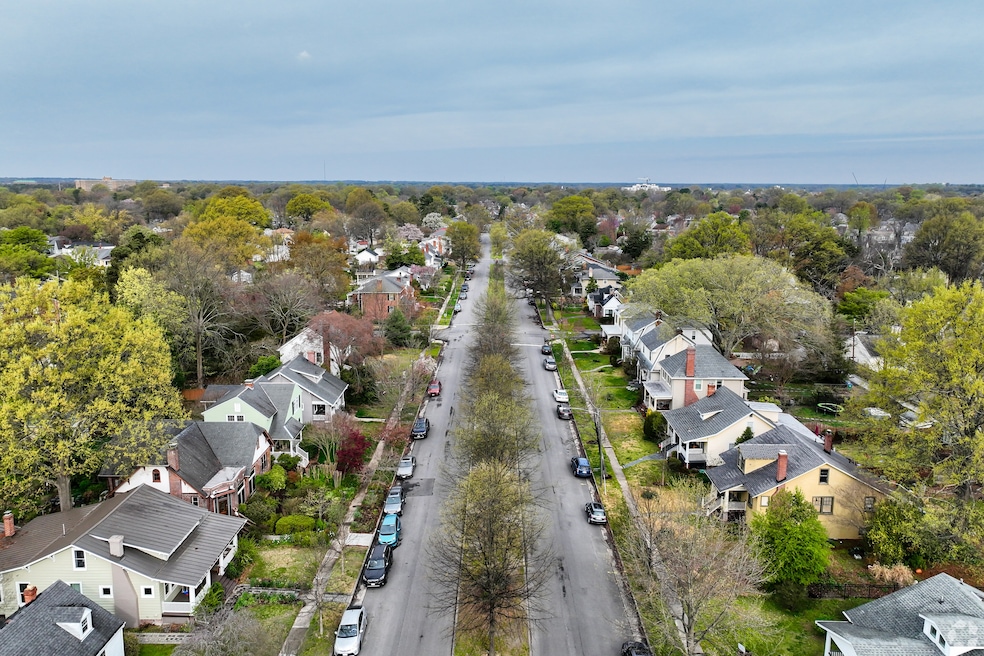Surveys in Massachusetts and Richmond, Virginia, have found a gap between those under the age of 45 and older people regarding their level of support for adding more housing options in neighborhoods that have mostly single-family, detached homes.
While a slight majority of residents polled in Virginia’s state capital said they would be comfortable with duplexes in these neighborhoods, support was close to 80% among people aged 25 to 44, according to a survey conducted for the city’s planning department. Meanwhile, the housing advocacy group Abundant Housing Massachusetts reported that 24% of people strongly favored allowing homes with up to three units and townhouses in single-family areas, but support rose to 34% among residents aged 30 to 44.
The data from the two surveys, released publicly this month, provide a glimpse of one of the challenges housing advocates face as they try to build support for more development in established residential areas. While younger renters and new homeowners may be open to expanding housing options, city governments often encounter strong opposition from long-time residents who fear changes in their neighborhoods’ character.
“The younger generation just wants to get into housing, as it’s become so out of reach,” Elizabeth Greenfield, the Richmond Planning Commission vice chair, said in an interview. “So any sort of ownership opportunity, they’re probably more open to it, so they can get into the community. And I think the younger folks like denser, more walkable communities.”
“We need to think about what the next generation wants and needs, but not at the expense of the people who have lived in those neighborhoods for a long time,” she added.
The majority of those surveyed in Richmond and Massachusetts are homeowners — 88% in Richmond and 65% in the Bay State. Close to 1,200 Richmond residents participated in the city's survey, while the Abundant Housing pollsters heard from about 800 people.
Besides their openness to duplexes in single-family home neighborhoods, Richmonders were surveyed about the maximum number of units they would like to see in areas that permit townhouse-style or attached housing. People aged 45 to 65 said they preferred no more than two units per building, while respondents aged 25 to 44 were open to up to six units.
Among both demographic groups, the Richmond survey found that residents wanted new housing development to blend in with what’s already on the ground in these neighborhoods, even if it’s on a slightly larger scale.
Of the residents surveyed in Massachusetts, 71% said building homes people can afford is more important than protecting traditional neighborhood character, and 63% say it matters more than preserving local control over what types of housing get built.
"These results confirm that Massachusetts residents continue to feel the strain of our severe housing shortage,” Jesse Kanson-Benanav, executive director of Abundant Housing Massachusetts, said in a statement.
The group’s survey found that, besides interest in more housing types in existing neighborhoods, younger people are more strongly supportive of new home construction near public transit stations. That’s especially true of people aged 18 to 29 (51% strongly support), compared to 33% of people 60 and older. Support was more even across age groups for allowing homes to be built on smaller lots.
Richmond is in the process of its first major overhaul of its zoning code, which regulates what type of homes can be built in each neighborhood and at what scale, since the 1970s. While individual Massachusetts cities like Cambridge have recently opened up single-family-zoned neighborhoods to more housing options, the state has also demanded that towns in the Boston area change their rules to allow multifamily housing in certain areas.
Some cities that have changed their rules in recent years to allow a variety of housing types in formerly single-family-only neighborhoods have seen limited results so far. In Portland, Oregon, which revamped its zoning in 2021, the city reported in February that it issued permits for 1,400 homes that are not single-family units in these neighborhoods between 2021 and 2024.


